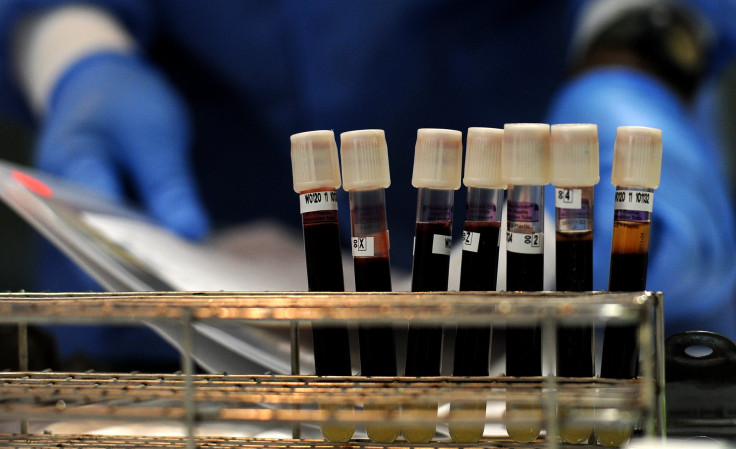A Blood Test Could Someday Tell You Whether You're At Risk Of A Breast Cancer Relapse

For breast cancer survivors, the fear of relapse is ever-present. Someday soon, however, a quick blood test may be able to not only put their minds at ease, but discover relapses long before they ever become particularly dangerous.
That’s the hope offered by a study published Wednesday in the journal Science Translational Medicine. The study authors found that their specifically tuned blood test was able to accurately predict which of their 55 participants, all successfully treated for early-stage breast cancer, would go on to develop a relapse as often as eight months before it was conventionally detected.
“Such unprecedented early prediction could allow for intervention before the reappearance of cancer in high-risk patients,” the authors concluded.
Noting that dying tumors release circulating tumor DNA (ctDNA) into the bloodstream, which has the potential to “seed new tumors,” the researchers devised a polymerase chain reaction (PCR) array designed to detect ctDNA. PCRs are commonly used to diagnose many an infectious disease in the body, and are already utilized to discover cancers like lymphoma and leukemia in their early stages.
The women in the study, who received both chemotherapy and surgery and were considered excellent candidates for a full cure, were tested for ctDNA both after surgery and every six months afterwards.
Coining their method “mutation tracking,” the researchers found that women who tested positive for ctDNA were 12 times as likely to relapse than those who hadn’t, and they were able to uncover metastatic relapse — a condition where a malignant cancer reappears elsewhere in the body after treatment — a median length of eight months before it met the clinical definition.
Though the mutations they tracked were common to many different types of breast cancer, they were also particular to each participant, meaning the researchers’ test was able to monitor the progress of their specific cancer.
"We have shown how a simple blood test has the potential to accurately predict which patients will relapse from breast cancer, much earlier than we can currently,” said senior author Dr. Nicholas Turner, a team leader at the Breakthrough Breast Cancer Research Center at the Institute of Cancer Research in London, in a statement. “We also used blood tests to build a picture of how the cancer was evolving over time, and this information could be invaluable to help doctors select the correct drugs to treat the cancer.
While the study’s findings are promising, it will undoubtedly take time before the dust settles.
“It will be some years before the test could potentially be available in hospitals, but we hope to bring this date closer by conducting much larger clinical trials starting next year,” Turner said. “There are still challenges in implementing this technology, but digital PCR is relatively cost-effective and the information that it provides could make a real difference to breast cancer patients."
But, should the test prove to be validated, it may be the harbinger of a significant shift in how we look at cancer treatment.
"We are moving into an era of personalised medicine for cancer patients. This test could help us stay a step ahead of cancer by monitoring the way it is changing and picking treatments that exploit the weakness of the particular tumor,” said Professor Paul Workman, Chief Executive of The Institute of Cancer Research. “It is really fantastic that we can get such a comprehensive insight about what is going on in the cancer all over the body, without the need for invasive biopsies.”
Source: Garcia-Murillas I, Schiavon G, Weigelt B, et al. Mutation tracking in circulating tumor DNA predicts relapse in early breast cancer. Science Translational Medicine. 2015.



























